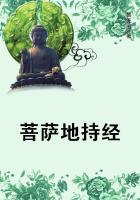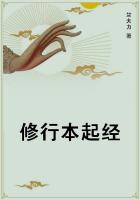The first requisite of a good servant is that he should conspicuously know his place. It is not enough that he knows how to effect certain desired mechanical results; he must above all, know how to effect these results in due form. Domestic service might be said to be a spiritual rather than a mechanical function. Gradually there grows up an elaborate system of good form, specifically regulating the manner in which this vicarious leisure of the servant class is to be performed. Any departure from these canons of form is to be depreciated, not so much because it evinces a shortcoming in mechanical efficiency, or even that it shows an absence of the servile attitude and temperament, but because, in the last analysis, it shows the absence of special training. Special training in personal service costs time and effort, and where it is obviously present in a high degree, it argues that the servant who possesses it, neither is nor has been habitually engaged in any productive occupation.
It is prima facie evidence of a vicarious leisure extending far back in the past. So that trained service has utility, not only as gratifying the master's instinctive liking for good and skilful workmanship and his propensity for conspicuous dominance over those whose lives are subservient to his own, but it has utility also as putting in evidence a much larger consumption of human service than would be shown by the mere present conspicuous leisure performed by an untrained person. It is a serious grievance if a gentleman's butler or footman performs his duties about his master's table or carriage in such unformed style as to suggest that his habitual occupation may be ploughing or sheepherding. Such bungling work would imply inability on the master's part to procure the service of specially trained servants; that is to say, it would imply inability to pay for the consumption of time, effort, and instruction required to fit a trained servant for special service under the exacting code of forms. If the performance of the servant argues lack of means on the part of his master, it defeats its chief substantial end; for the chief use of servants is the evidence they afford of the master's ability to pay.
What has just been said might be taken to imply that the offence of an under-trained servant lies in a direct suggestion of inexpensiveness or of usefulness. Such, of course, is not the case. The connection is much less immediate. What happens here is what happens generally. Whatever approves itself to us on any ground at the outset, presently comes to appeal to us as a gratifying thing in itself; it comes to rest in our habits of though as substantially right. But in order that any specific canon of deportment shall maintain itself in favour, it must continue to have the support of, or at least not be incompatible with, the habit or aptitude which constitutes the norm of its development. The need of vicarious leisure, or conspicuous consumption of service, is a dominant incentive to the keeping of servants. So long as this remains true it may be set down without much discussion that any such departure from accepted usage as would suggest an abridged apprenticeship in service would presently be found insufferable. The requirement of an expensive vicarious leisure acts indirectly, selectively, by guiding the formation of our taste, -- of our sense of what is right in these matters, -- and so weeds out unconformable departures by withholding approval of them.
As the standard of wealth recognized by common consent advances, the possession and exploitation of servants as a means of showing superfluity undergoes a refinement. The possession and maintenance of slaves employed in the production of goods argues wealth and prowess, but the maintenance of servants who produce nothing argues still higher wealth and position. Under this principle there arises a class of servants, the more numerous the better, whose sole office is fatuously to wait upon the person of their owner, and so to put in evidence his ability unproductively to consume a large amount of service. There supervenes a division of labour among the servants or dependents whose life is spent in maintaining the honour of the gentleman of leisure. So that, while one group produces goods for him, another group, usually headed by the wife, or chief, consumes for him in conspicuous leisure; thereby putting in evidence his ability to sustain large pecuniary damage without impairing his superior opulence.















